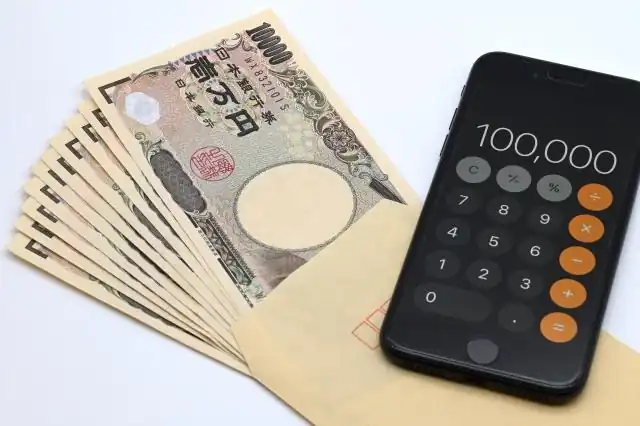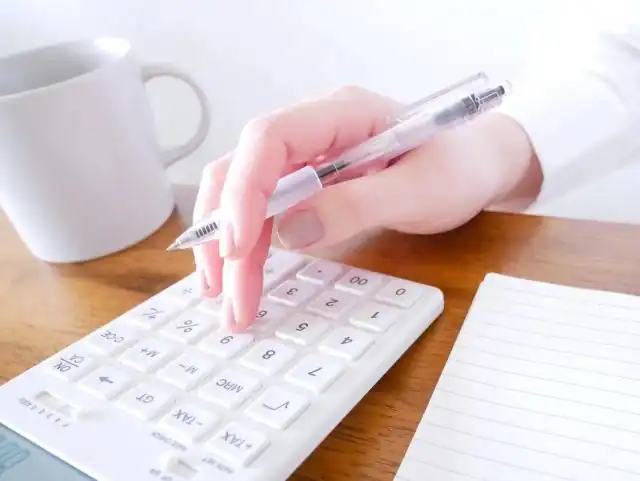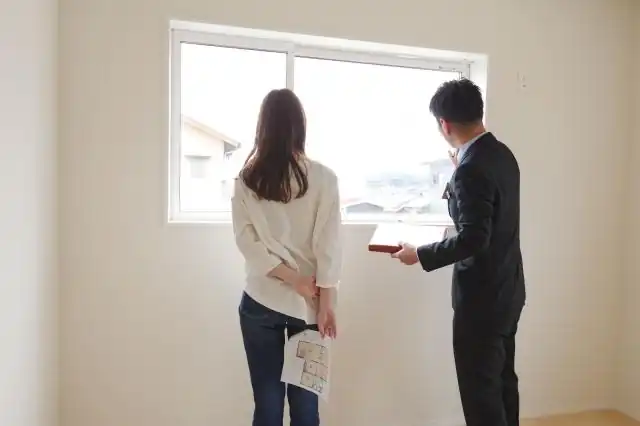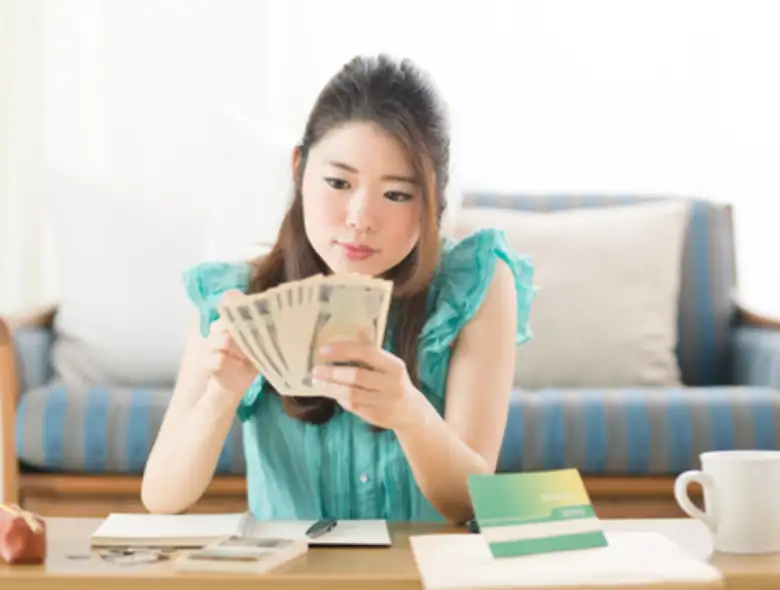Some people may wonder if they can live alone on a monthly income of 120,000 yen, or how to reduce their living expenses efficiently.
While by any means, it’s not a financially comfortable life, some individuals manage to live alone on a monthly income of 120,000 yen. They are able to do so by choosing cheap apartments and saving on food and utility expenses.
However, with a monthly income of 120,000 yen, there is little room for extra expenses, so if unexpected costs arise, they can quickly exhaust the money by the end of the month. This article outlines the estimated living expenses of those who live alone on a monthly income of 120,000 yen and provides practical tips for financial improvement.
Village House provides a variety of rental properties across Japan starting from 20,000 yen. If you’re seeking a nice apartment, that is also affordable, please visit our website for more details.
The net income of a 120,000 yen monthly income is approximately 100,000 yen

The monthly income of 120,000 yen is not your take-home pay. The take-home pay reflects your earnings after deducting income tax, resident tax, social insurance, and other applicable fees.
Tax amounts can vary based on individual circumstances. As a guideline, approximately 75-85% of the salary is typically the take-home pay for a single person. Therefore, if your monthly income is 120,000 yen, you can expect your take-home pay to be around 100,000 yen.
It may seem like a significant amount is being deducted, but employers bear about half the premium burden for social insurance deductions. On the other hand, self-employed individuals (freelancers) or part-time workers do not benefit from this deduction, resulting in an additional payment of about 20,000 yen per month.
A rough estimate of the living expenses for a monthly income of 120,000 yen

Let’s have a look at the estimated living expenses of a net income of 100,000 yen. Based on the table below, while living on a net income of 100,000 yen is possible, it does not leave room for savings or emergency funds. Therefore, coping with illness or injury could become challenging.
| Subject | Budget | Percentage |
| Rent | Yen 30,000 | 30% |
| Food expenses | Yen 30,000 | 30% |
| Utility bills | Yen 7,000 | 7% |
| Communication costs | Yen 10,000 | 10% |
| Daily necessities and consumables | Yen 8,000 | 8% |
| Expenses for entertainment or pleasure | Yen 15,000 | 15% |
Rent
It is generally said that rent should be kept to one-third of your take-home pay. For example, if your take-home pay is 100,000 yen, look for a rental budget of up to 33,000 yen. If the property you want to rent is more than one-third of your take-home pay, there is a high chance that you will not pass the inspection.
Food expenses
With a net income of 100,000 yen, the food budget amounts to 30,000 yen. To put it simply, the daily budget for food is 1,000 yen. Therefore, frequent dining out or using convenience stores can quickly exceed the food budget. To save on food costs, it’s a good idea to buy ingredients in bulk on sale days and cook your meals as much as possible.
Utility expenses
If you avoid unnecessary use, your monthly utility bills will be around 7,000 yen. However, be careful as electricity usage tends to be high in summer and winter with the increase in heating and cooling use.
Also, it’s important to make a habit of daily frugal practices, such as using a tapped extension outlet, turning electrical appliances off when not in use, and limiting showers to every other day.
Communication costs
The typical communication expenses for a single-person household are generally about 10,000 yen including the internet line and smartphone fee. If you do not need an internet line, it will be cheaper.
The cost of smartphone plans can be reduced to around 1,000 to 3,000 yen per month by switching from major carriers to budget SIM options, depending on the contract terms.
Even if you don’t change carriers, you may still be able to save more than 1,000 yen by reviewing your current contract plan.
Daily necessities and consumables
Various daily necessities such as shampoo, toilet paper, laundry detergent, towels, and more are needed in a single-person household.
While you can always buy them at a convenience store, this tends to be expensive. Therefore, you can save money by opting for drugstores and 100-yen shops whenever possible.
Social expenses and entertainment expenses
For individuals living alone, the budget for entertainment and socializing is 15,000 yen. Social and entertainment expenses refer to the money you spend to socialize with your friends and on your hobbies. Additionally, when managing expenses on a net income of 100,000 yen, funds allocated for socializing and entertainment can efficiently serve as a reserve fund.
It is important to set your rules in advance such as drinking once a month and spending no more than 10,000 yen on hobbies.
Average living expenses of a single person

According to the “1993 Basic Survey on Wage Structure” conducted by the Ministry of Health, Labour and Welfare, the average wage of a male under 19 years old was approximately 190,000 yen, while it was about 188,000 yen for a female.
If a male person earns a monthly salary of 190,000 yen, his take-home pay would be approximately 152,000 yen. Applying this to the earlier scenario where the rent is 45,000 yen per month, he would still have about 37,000 yen remaining as reserve funds.
Compared to the average wages in statistical surveys, it would be fair to say that living alone on a take-home pay of 100,000 yen is challenging.
Living in urban areas is difficult

The reality is that living alone on a take-home pay of 100,000 yen is challenging because there aren’t enough funds. Moreover, sustaining such a lifestyle in urban areas with a high rent is not feasible with this income.
Even if you live in a region where the rent is cheaper than in urban centers, you will still need to budget your daily finances carefully to maintain your lifestyle. Insufficient funds can degrade the quality of life and lead to mental exhaustion.
Also, if you do not have enough money, you may not be able to survive through an emergency, so you need to be careful.
Choose a cheap apartment if you are living alone on a monthly income of 120,000 yen

If you live alone with a monthly income of 120,000 yen, saving on fixed costs is an effective solution. Among them, living in a property with a low rent will help your finances over a long period.
Furthermore, here are some tips to help you find a cheap apartment.
- Choose an area with low rent
- Choose a property that does not charge additional fees for common areas and management
- Narrow down to compact properties such as 1K or one-room apartments
- Avoid the busy real estate season from January to March
Using a real estate search app to find a property is beneficial, but consulting with real estate agents is also recommended. They will listen carefully to your requirements and conditions and introduce apartments that meet your preferences.
Improve your finances by saving money while living alone

Here are five easy ways to save money when living alone.
1. Cook for yourself using low-priced ingredients
Food expenses can be reduced simply by taking advantage of supermarket specials and cooking your meals using low-cost ingredients. Frozen vegetables and meats, as well as pasta are affordable options that are recommended to be used as main ingredients for your meals. For those who are not good at cooking, refer to social networking sites and cooking apps for guidance.
2. Choose a company with low electricity rates
Since the liberalization of the electricity market on April 1, 2016, consumers have the freedom to select companies offering lower electricity rates. For individuals living alone, this choice can save approximately 1,000 yen per month on their electricity bills, totaling over 10,000 yen annually.
3. Review your internet line company
An effective way to optimize your Internet connection is to choose an optical line bundled with your smartphone carrier, which often provides a discounted package. The discount varies depending on conditions, but generally, you can save around 1,000 yen per month, amounting to 12,000 yen annually.
4. Choose a property that supports city gas
City gas is cheaper than propane gas. The basic fee and usage fee for city gas is about 40% cheaper than propane gas.
5. Keep the air conditioner at a constant temperature for each season
Changing the temperature setting of the air conditioner by 1 degree requires about 13% power consumption. Therefore, you can save on electricity bills by setting the air conditioner to 26 degrees in summer and 20 degrees in winter. Also, leaving the air conditioner on at a constant temperature for a long time will reduce electricity bills compared to turning it off frequently.
Village House offers over 1,000 properties throughout Japan. Starting from 20,000 yen, rent is also reasonable. If you are looking for a low-rent apartment, please do not hesitate to contact us.
Related articles:
- Top 5 Tips on How You Can Keep Your Monthly Expenses on Food As Low As ¥20,000!
- How Much Does It Cost To Move In Japan – Top 5 Biggest Expenses
- 9 Practical Tips to Save On Your Electricity Bill During Winter
- Average Gas Utility Bills for a Person Living Alone: Tips on How to Save!
- Does Cooking At Home Actually Help Save You Money When You Live Alone? Top 5 Tips on How To Succeed!

Hello, I’m Machiko Doi, a freelance writer who writes about housing and living in Japan.
I live in an 80-year-old house that I inherited from my grandparents along with my two shelter cats and daughter.
We live a relaxed life while repairing the house.
I like to cook vegetables from the garden and fresh fish caught by my father, and enjoy them with cold beer on a hot day or hot sake on a cold day.



